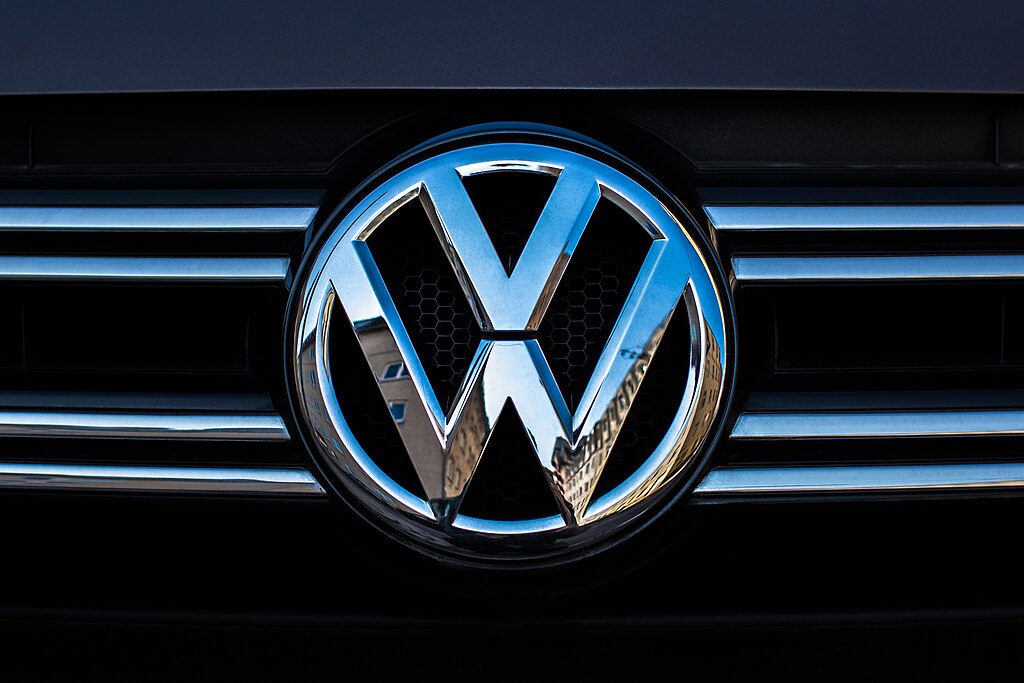Volkswagen is implementing new import fees on vehicles impacted by the 25% tariffs imposed by U.S. President Donald Trump, according to a report from the Wall Street Journal. The German automaker has also paused rail shipments from Mexico and is temporarily holding vehicles arriving by sea from Europe at U.S. ports.
The tariffs, which cover over $460 billion annually in vehicle and auto parts imports, are expected to significantly impact the automotive industry. Volkswagen (ETR: VOWG_p) informed dealers it will release further details by mid-April about pricing strategies for tariff-affected models and plans to allocate those vehicles to dealerships by the end of the month.
In a memo cited by the WSJ, Volkswagen emphasized its commitment to transparency during this period of market uncertainty. The company aims to support dealers and customers as it navigates the challenges posed by the tariffs.
Aerial images captured by Reuters on April 2, 2025, showed Volkswagen vehicles stockpiled at the Volkswagen Group of America facility near Baltimore, Maryland—the same day President Trump announced the new trade measures.
While Volkswagen has yet to publicly comment on the Reuters report, the automaker previously warned that U.S. tariffs and retaliatory countermeasures could hinder economic growth both domestically and globally.
The move marks a significant response from one of the world’s largest car manufacturers, highlighting the ripple effects of trade policy on international automakers and supply chains. As the automotive sector braces for long-term impacts, all eyes are on how manufacturers and consumers will adapt to rising costs and shifting market conditions.



 Rio Tinto Shares Hit Record High After Ending Glencore Merger Talks
Rio Tinto Shares Hit Record High After Ending Glencore Merger Talks  Nvidia, ByteDance, and the U.S.-China AI Chip Standoff Over H200 Exports
Nvidia, ByteDance, and the U.S.-China AI Chip Standoff Over H200 Exports  Toyota’s Surprise CEO Change Signals Strategic Shift Amid Global Auto Turmoil
Toyota’s Surprise CEO Change Signals Strategic Shift Amid Global Auto Turmoil  Alphabet’s Massive AI Spending Surge Signals Confidence in Google’s Growth Engine
Alphabet’s Massive AI Spending Surge Signals Confidence in Google’s Growth Engine  OpenAI Expands Enterprise AI Strategy With Major Hiring Push Ahead of New Business Offering
OpenAI Expands Enterprise AI Strategy With Major Hiring Push Ahead of New Business Offering  Global PC Makers Eye Chinese Memory Chip Suppliers Amid Ongoing Supply Crunch
Global PC Makers Eye Chinese Memory Chip Suppliers Amid Ongoing Supply Crunch  Missouri Judge Dismisses Lawsuit Challenging Starbucks’ Diversity and Inclusion Policies
Missouri Judge Dismisses Lawsuit Challenging Starbucks’ Diversity and Inclusion Policies  Hims & Hers Halts Compounded Semaglutide Pill After FDA Warning
Hims & Hers Halts Compounded Semaglutide Pill After FDA Warning  Nvidia CEO Jensen Huang Says AI Investment Boom Is Just Beginning as NVDA Shares Surge
Nvidia CEO Jensen Huang Says AI Investment Boom Is Just Beginning as NVDA Shares Surge  SpaceX Prioritizes Moon Mission Before Mars as Starship Development Accelerates
SpaceX Prioritizes Moon Mission Before Mars as Starship Development Accelerates  Baidu Approves $5 Billion Share Buyback and Plans First-Ever Dividend in 2026
Baidu Approves $5 Billion Share Buyback and Plans First-Ever Dividend in 2026  Tencent Shares Slide After WeChat Restricts YuanBao AI Promotional Links
Tencent Shares Slide After WeChat Restricts YuanBao AI Promotional Links  Uber Ordered to Pay $8.5 Million in Bellwether Sexual Assault Lawsuit
Uber Ordered to Pay $8.5 Million in Bellwether Sexual Assault Lawsuit  CK Hutchison Launches Arbitration After Panama Court Revokes Canal Port Licences
CK Hutchison Launches Arbitration After Panama Court Revokes Canal Port Licences  Ford and Geely Explore Strategic Manufacturing Partnership in Europe
Ford and Geely Explore Strategic Manufacturing Partnership in Europe  Sony Q3 Profit Jumps on Gaming and Image Sensors, Full-Year Outlook Raised
Sony Q3 Profit Jumps on Gaming and Image Sensors, Full-Year Outlook Raised 































